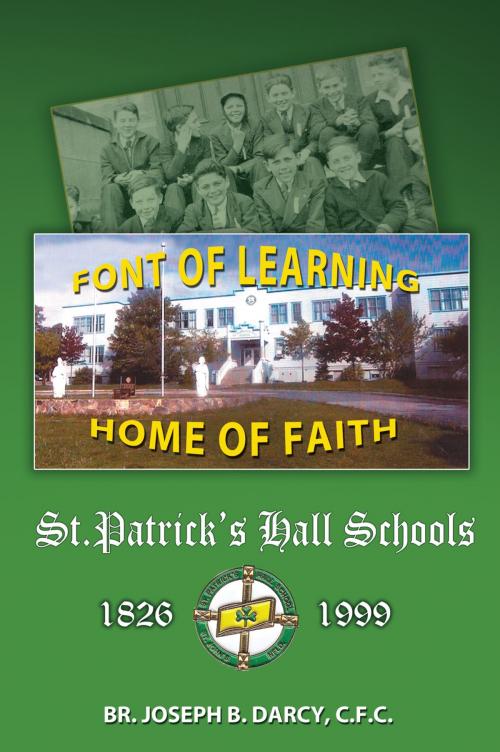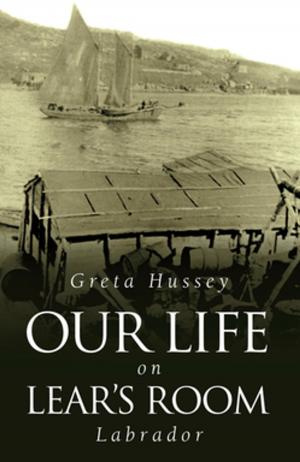| Author: | Joseph B. Darcy C.F.C. | ISBN: | 9781771173421 |
| Publisher: | Flanker Press | Publication: | January 14, 2014 |
| Imprint: | Flanker Press | Language: | English |
| Author: | Joseph B. Darcy C.F.C. |
| ISBN: | 9781771173421 |
| Publisher: | Flanker Press |
| Publication: | January 14, 2014 |
| Imprint: | Flanker Press |
| Language: | English |
St. Patrick's Hall Schools, the creation of the Benevolent Irish Society (BIS), was the first modern school in Newfoundland. No ordinary educational establishment, it played a primary part in raising the Catholic young men of St. John's from the degrading poverty that was their lot in the early 19th century to economic affluence and to positions of importance in society in the 20th century. In Newfoundland itself, St. Pat's, as it was known played a seminal role in transforming the primitive social and economic structure that existed in Newfoundland in the 19th century into the sophisticated society of the present. It did this by developing educated, responsible citizens who were capable of providing the infrastructure that made this transformation possible. Newfoundland owes a debt of gratitude to the BIS, which inspired and financed St. Pat's, as well as to the Christian Brothers who were the main architects of its development. A native of St. John's, Br. Joseph B. Darcy is uniquely placed to write the history of this illustrious institute. His family history is intertwined with that of the school. His grandfather graduated in 1861 while it was still called The Orphan Asylum School, and served as a pupil monitor. HIs father attended St. Pat's and acheived the distinction of being the school's 'head boy' in his final year, 1904. Still later, as treasurer of teh BIS for many years, he was responsible for overseeing the financial support which the Society provided for the school. While Br. Darcy did not himself attend St. Pat's, his position on the American Provincial Council of the Christian Brothers during the 1960s gave him a close view of the St. John's Catholic schools during that turbulent period. His later position on the General Council of the Brothers in Rome provided him with the unique opportunity of studying the voluminous correspondence that went back and forth between the early Brothers in Newfoundland and teh General Council of the period., depicting vivdily the many trials and challenges that these Brithers faced. The fact that he is now living at Mount St. Francis, where the Canadian archives of teh Brothers are located, has enabled him to study much correspondence and other information which would normally be unavailble to reserachers.
St. Patrick's Hall Schools, the creation of the Benevolent Irish Society (BIS), was the first modern school in Newfoundland. No ordinary educational establishment, it played a primary part in raising the Catholic young men of St. John's from the degrading poverty that was their lot in the early 19th century to economic affluence and to positions of importance in society in the 20th century. In Newfoundland itself, St. Pat's, as it was known played a seminal role in transforming the primitive social and economic structure that existed in Newfoundland in the 19th century into the sophisticated society of the present. It did this by developing educated, responsible citizens who were capable of providing the infrastructure that made this transformation possible. Newfoundland owes a debt of gratitude to the BIS, which inspired and financed St. Pat's, as well as to the Christian Brothers who were the main architects of its development. A native of St. John's, Br. Joseph B. Darcy is uniquely placed to write the history of this illustrious institute. His family history is intertwined with that of the school. His grandfather graduated in 1861 while it was still called The Orphan Asylum School, and served as a pupil monitor. HIs father attended St. Pat's and acheived the distinction of being the school's 'head boy' in his final year, 1904. Still later, as treasurer of teh BIS for many years, he was responsible for overseeing the financial support which the Society provided for the school. While Br. Darcy did not himself attend St. Pat's, his position on the American Provincial Council of the Christian Brothers during the 1960s gave him a close view of the St. John's Catholic schools during that turbulent period. His later position on the General Council of the Brothers in Rome provided him with the unique opportunity of studying the voluminous correspondence that went back and forth between the early Brothers in Newfoundland and teh General Council of the period., depicting vivdily the many trials and challenges that these Brithers faced. The fact that he is now living at Mount St. Francis, where the Canadian archives of teh Brothers are located, has enabled him to study much correspondence and other information which would normally be unavailble to reserachers.















